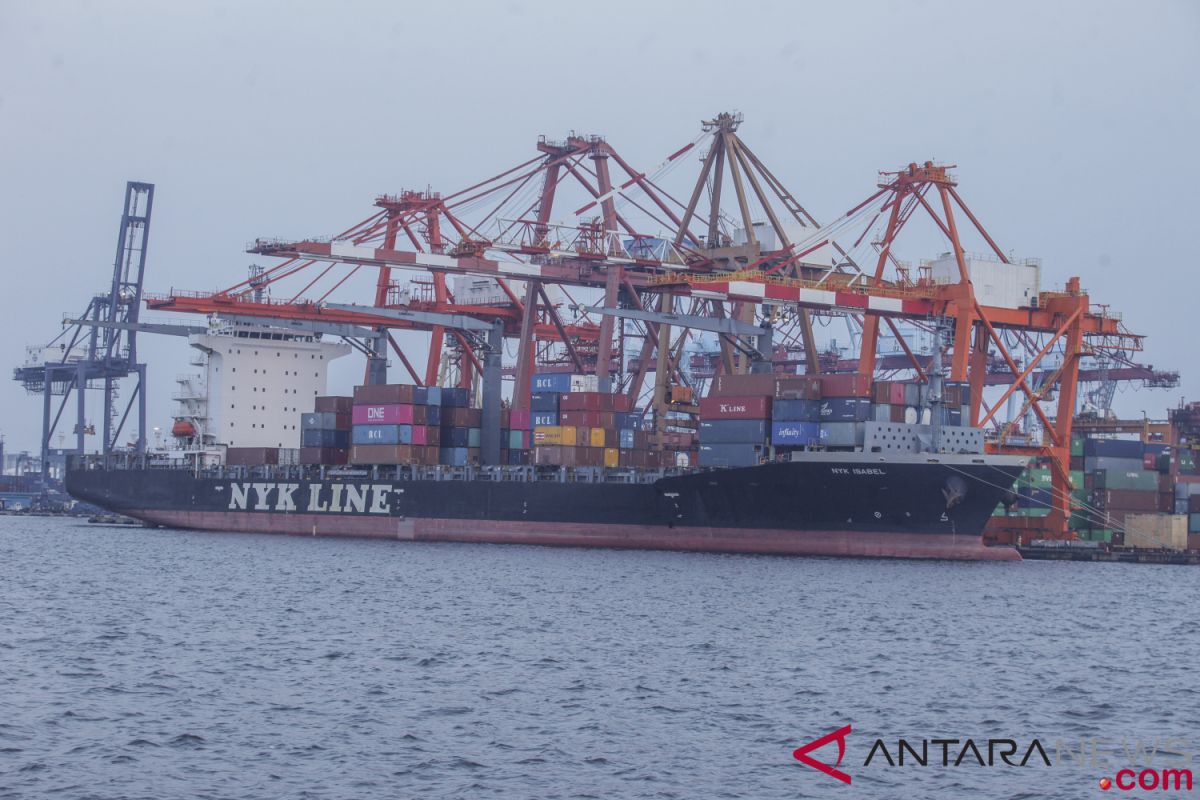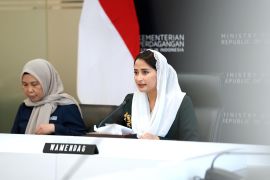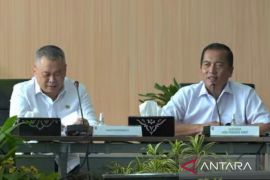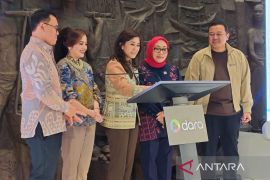One of the ports is PT Pelindo II, or Indonesia Port Corporation (IPC), which has since 2016 begun applying a digital system covering seaside, terminal, and other supporting activities. This is no half-hearted endeavor, as IPC has budgeted Rp1 trillion for financing until 2020 to realize a digital airport.
This digitalization effort holds significance, especially at the Tanjung Priok Port, as one of the IPC operating areas, accounting for 70 percent of Indonesia`s export and import activities.
Hence, ensuring smooth flow at the port of Jakarta, including loading and unloading processes, is substantial, as the impact is directly felt on the real sector.
The flow of goods and loading and unloading are certainly inseparable from the dwelling time at ports that continues to be pressed.
The IPC is conducting digital transformation to accelerate the dwelling time by creating an Integrated Container Freight Station (CFS Center), modernizing port infrastructure and superstructure, and optimizing the use of information technology implemented in the form of VTS (Vessel Traffic System), MOS (Marine Operating System), Inaportnet, NPK and PK TOS, Auto Tally and Auto Gate and E-Service.
To realize this, the company has implemented a non-container terminal operating system (NPK TOS) in the ports it manages. For instance, the Banten Port has entirely implemented the program electronically.
Director of Pelindo II for Operational and Information System Prasetyadi noted that digitalization can help to save five to 10 percent of the operating costs.
"We increase our bottom line profit because there is efficiency. With digitalization, the costs incurred are much lower, and face-to-face contact with officials is not necessary," he stated.
He explained that with digitalization, the dwelling time can be reduced, from 3.5 days earlier, to 2.8 days currently.
In addition, the IPC has prepared an auto tally program aimed at counting the number of containers entering and leaving the port.
During this time, the process, which was conducted manually, is now employing a remote system.
"Hence, it is electronic. This is new in Indonesia, and this is the first time," Prasetyadi stated.
In addition, 12 port branches have implemented electronic (cash) or cashless transactions since September 2017.
Implementation
Digital transformation of ports in Indonesia can be fully implemented this year, with IPC having prepared six pillars of e-channels to support this initiative.
The six pillars comprise e-registration, e-booking, e-transaction, e-payment, e-billing, and e-care.
The application of these six pillars is believed to facilitate port services and time efficiency as well as encourage the progress of ports in Indonesia.
Digitalization of ports will also encompass the development of NPCT2 and NP terminals where IPC will conduct the entire loading and unloading processes at ports without the use of direct manpower. All processes on the field will be conducted through system automation, and the necessary manpower will work through the control tower.
In terms of commercial and business development, IPC has initiated the Customer Relationship Management (CRM) Program to improve customer service.
Meanwhile, in terms of engineering and risk management, IPC will launch a digital reporting system and Equipment Reporting System (ERMS) that serves to monitor loading and unloading equipment in an integrated manner and provide comprehensive, fast, precise, and accurate reports, so that it can overcome early risk.
In the meantime, there has been an increase in the operation and information systems, i.e., the pattern of operating a full automation system or full automation and semi automation in the operation of Container Terminal (CT) 2.
This system is projected to reduce human labor on the field and decrease errors occurring during the loading and unloading processes.
In the full automation-based operation pattern, an automatic stacking crane handles the process of entry and removal of containers.
E-loading and unloading processes at the dock are served by using an automatic guided vehicle, without being driven by the operator, and there is a place for external trucks to wait to prevent congestion inside the terminal.
In the semi-automation-based operation pattern, the processes of loading and discharging containers are carried out using an automatic stacking crane, but the loading and unloading processes at the dock are served by using an internal truck.
To strengthen the company`s internal and external financial service, the IPC has since 2017 implemented note standardization through e-Invoice, e-Billing system, asset database systemization, project costing, and banking product development.
In an effort to improve the health and well-being of the largest assets of the company, i.e. human resources (HR), the IPC also implements a Career Path Platform that clearly regulates the career path of each employee, so that every HR in the company has the opportunity to learn and develop together.
It should be lauded
Digitalization is a way to enhance the effectiveness of port services and the efficiency of resources within ports that contribute to logistics costs.
The World Bank released the 2018 Logistic Performance Index (LPI), in which Indonesia is ranked 46th, with a score of 3.15, or up from its 63rd position, with a score of 2.98, in the LPI 2017.
This achievement holds significance, considering that Indonesia continues to face several obstacles, especially concerning the relatively high logistics costs, Director General of Sea Transportation of the Ministry of Transportation Agus Purnomo stated.
Meanwhile, LPI is based on six aspects: efficiency in customs and border management clearance (customs), quality of trade and transportation infrastructure, ease of regulation of international shipping, competency and quality of logistics services, ability to track and tracing, and frequency of delivery on time.
"The Tanjung Priok Port has begun to make improvements, and we laud it, as it is new and gradual. We are waiting for them to continue to improve those systems," he stated.
Digitalization of the IPC port is expected to facilitate activities at the port, including for the sea toll activity, which is the priority program of the Joko Widodo-Jusuf Kalla government to transform Indonesia into a global maritime axis.
Reporting by Eliswan
Edited by INE
Reporter: Antara
Editor: Eliswan Azly
Copyright © ANTARA 2018












